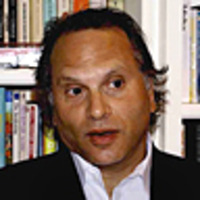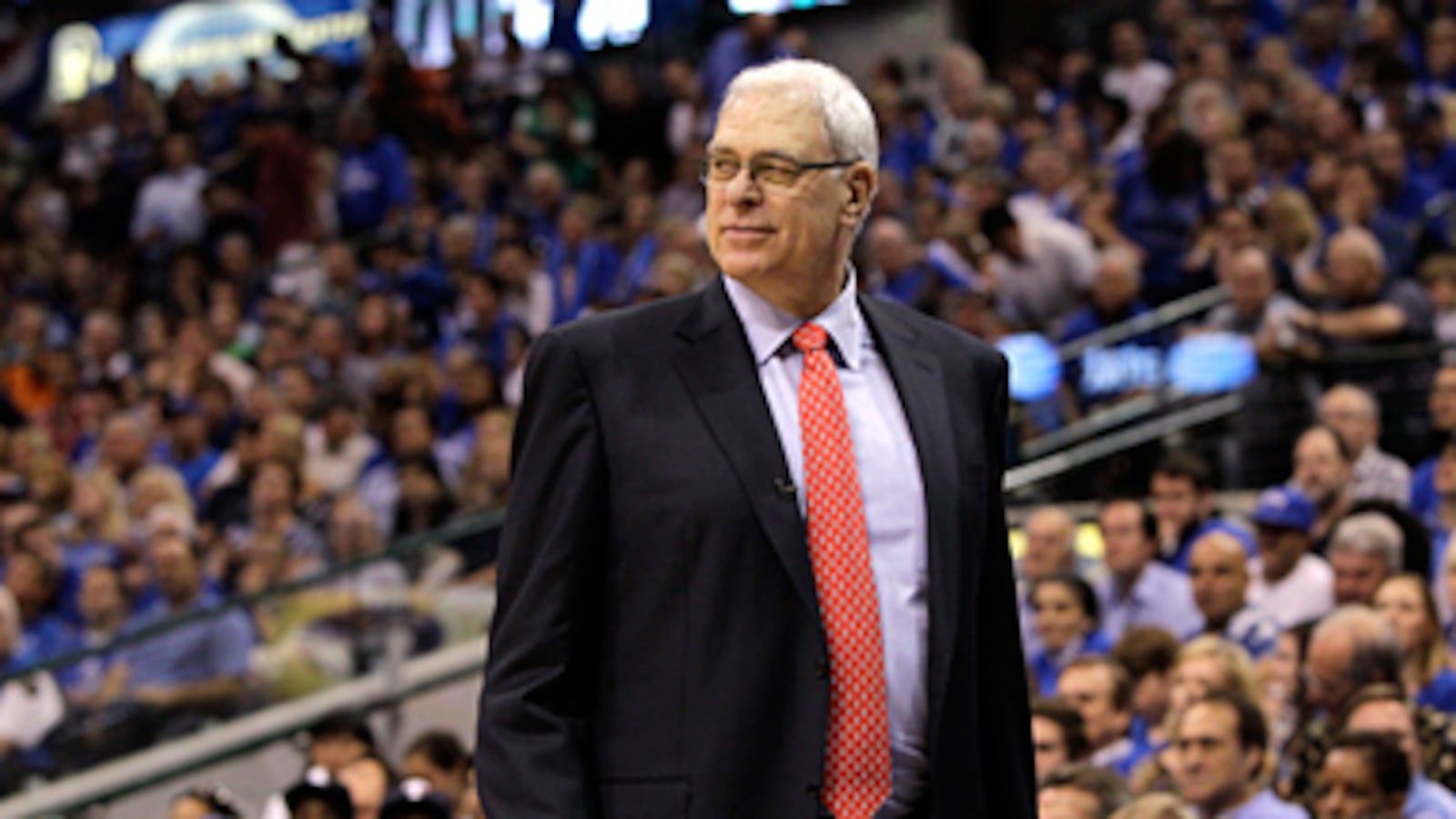And now, as the great Zen Master Phil Jackson walks down the rose-covered road into retirement, let us meditate on the most overrated position in all of sports: the Coach.
Reams have been written on the Coach—his X-and-O genius, his ability to motivate in the locker room (do you think there is a single player who hasn’t heard a variation of that speech a thousand times before?).
Do coaches make a significant difference? They do in college football and basketball, not because of anything they do on the hardwood or gridiron, but because of their ability to recruit with or without intermediaries to deliver the cash.
When I wrote the book Three Nights in August, I broke down a three-game regular-season series between the St. Louis Cardinals and the Chicago Cubs to show the myriad moves that a manager must make. The book focused on Cardinals Manager Tony La Russa. Whether you love La Russa or hate him, he is one of the rare coaches who actually created a game-changing innovation: the invention of the ninth-inning closer with the use of Dennis Eckersley during the Oakland Athletics’ championship run in the late 1980s.
But La Russa will be the first to tell you there is no substitute for talent. You can fret over the lineup and changing pitchers all you want. You make those hieroglyphic-laminated sheets that football coaches obsessively draw up, even though they're best used to hide their lips when talking. You can take the little board and diagram the last play in basketball. But if the talent is not there, it is an overrated pursuit. The most valuable skill of the pro coach or manager: being elsewhere when the steroids and performance enhancers are injected and ingested—don’t ask, don’t tell, don’t want to know.
Which leads us back to Jackson, who for all his Buddha BS is so tolerant he no longer speaks to Jerry Krause, the man who gave him his first coaching chance in the National Basketball Association, as Harvey Araton pointed out this week in The New York Times. Instead, he went out Sunday as the self-interest marketing fraud he mostly was—his defending champions out of control in a thrashing by the Dallas Mavericks in the final contest of a four-game sweep, committing flagrant fouls including one by Andrew Bynum that looked like a beheading, acting like spoiled brats as they stomped to the locker room and tore off their jerseys.
I remember a 60 Minutes segment on Jackson in which he was seen going around the locker room sprinkling incense. It was such a transparent element to be different, to be unorthodox, when it reeked of narcissistic grandiosity.

A coach should be able to rein in his team. He should be able at all times to imprint his team with class and character. It is something a coach actually has control over. Jackson did not do that, a clear middle finger to controversial Mavericks owner Mark Cuban and also exhibiting the insufferable arrogance that the normal rules never applied to the Zen Master. Like a portrait of an angel in the clouds, he always acted above it all when he was a down and dirty stealth bomber.
The media, of course, has bought into the shtick because it makes good copy. It was they who created the legend and it was Jackson who eagerly embraced it. Over the years he has given his players weighty books to read (I guarantee they never read past the cover unless it was a comic book and even then it was a 50-50 shot). I remember watching a 60 Minutes segment on Jackson in which, when he wasn’t talking in elliptical nonsense, he was seen going around the locker room sprinkling incense. It is a ritual on Indian reservations in North Dakota, Jackson's native state, which isn't quite the same as a Laker basketball game in Los Angeles. It seemed like such a transparent element to be different, to be unorthodox, when it reeked of narcissistic grandiosity.
Yes I know: He did win three championships in a row with the Chicago Bulls and then the Los Angeles Lakers. Yes, he won a record 11 championships with the Bulls and Lakers. But with the Bulls he had the best player ever in Michael Jordan. With the Lakers, he had among others Kobe Bryant, who probably ranks in the top five basketball players of all time and certainly the top 10. Not to mention Shaquille O’Neal when he was still the most dominant center in the game. Doug Moe could have won with these guys. It wasn’t like he was dealing with Shawn Bradley and Mateen Cleaves.
Jackson did make crucial adjustments when he came to the Bulls. He instituted the triangle offense that had an enormous positive impact on Jordan. But as Araton pointed out, it was not an original concept. He got it from the vastly underrated Tex Winter. It worked for the Bulls, so Jackson does deserve a lifetime supply of lotus blossoms.
But I think I am on pretty safe ground that Jackson, like every other basketball coach, did not make a single shot, or a single pass, or force a single turnover.
Coaches say. Players do.
Getting up and calling for a timeout is not breathtaking strategy, although it required great exertion on Jackson’s part because he is 6-8. Nor is diagramming a down-to-the-wire play where most players, unless it’s the playoffs, dutifully huddle and fake listening when the far greater concern is which concubine in the stands to entertain tonight.
Are there a few great coaches out there? Vince Lombardi was a master motivator. Bobby Knight, when he wasn’t acting deranged, also elevated players to a different plateau. Bill Walsh was considered a tactical offensive genius, but much of it was taken from Sid Gillman. His best skill was in drafting players—Joe Montana, Ronnie Lott, Jerry Rice, Roger Craig.
I also have a special fondness for Joe Paterno, who at this point in his 80s, can’t see, is too slow to get out of the way of tackles on the sidelines and broke his leg as a result, doesn’t wear a headset so he has no clue of what is going on, and is an inspiration to Mister Magoo fans everywhere. But Paterno is a great coach, maybe the greatest, because of the enormous donations he has made to Penn State, in the range of $4 million.
Because of the media’s need to create instant heroes and villains, coaches are given far too much credit when the team wins and far too much criticism when the team loses. There would be no talk radio without them.
So the Zen Master is gone. Until he un-retires again because of boredom and missing the klieg lights and having a car trunk still stuffed with incense. And decides to next coach the New York Knicks until he realizes that no amount of incense burning will ever change the most pathetic and screwed up sports franchise in America.
But Phil Jackson won’t be held responsible. The structural incompetence of the Knicks will be blamed. And Jackson is undoubtedly writing a sequel to his enormously successful Sacred Hoops, this one apparently called Zen and the Art of Making Millions.
Buzz Bissinger, a sports columnist for The Daily Beast, is a Pulitzer Prize-winning journalist and the author of Friday Night Lights and Three Nights in August. He is a contributing editor at Vanity Fair.






